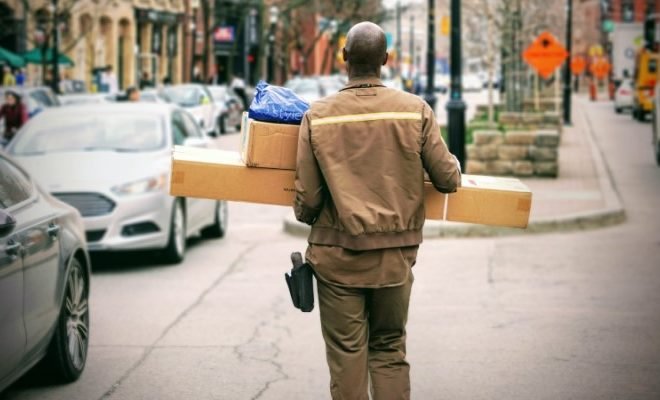What to Know Before Working as a Courier

Working as a courier offers plenty of benefits, but there are several things drivers need to know before hitting the road. The freedom of the work is extremely appealing. Still, there are some responsibilities drivers need to be aware of, the most important of which is courier insurance which could see drivers break the law if not purchased correctly. (Read more about courier insurance requirements here.)
Here is a rundown of what drivers and riders need to know before working as a courier.
Positives:
- Working hours to suit the individual: The biggest draw to being a courier is it offers flexible working hours. This makes parcel delivery driving popular for people wanting to top up their existing income or fit work in around other commitments. However, there are permanent jobs with logistics companies that offer full-time work with set hours for those who don’t appeal to.
- No office desk: Drivers are out on the road and regularly on their feet, with many saying they enjoy being active and meeting members of the public.
- Become your own boss: Self-employed drivers enjoy being able to make their own decisions and control when and where they work.
- There’s demand for delivery drivers: Online ordering is not going anywhere, with online retail sales estimated to hit £99.31billion by 2020, Statista says.
- Chance to earn more money if needed: Parcels are now delivered seven days a week, so couriers can work extra shifts if they like and may also decide to take advantage of peak times such as Christmas or Black Friday. One driver said he made three times his usual income in the three months to Christmas.
Negatives:
- Anti-social hours: Most courier jobs start early in the morning, and some even work through the night. Flexibility works both ways, so while drivers may like the thought of picking and choosing when they work, there may be better – more anti-social – times when there is more work.
- No guarantee of work: A self-employed worker has no guarantee of work and has to think strategically if they want to make the most of the opportunities available. Perhaps that means travelling to a busier area with more packages or signing up to work for a number of different apps. It can be rewarding when a driver makes a plan work, but fluctuations in pay can be frustrating and difficult to manage.
- Extra costs: A driver’s vehicle is the key to their revenue and they can be expensive to run. A driver needs to keep the car well-maintained, fuelled, insured with up to date MOT and tax, and there is also self-employment costs such as tax and pension. Courier insurance is eye-wateringly expensive compared to cover for social, domestic and pleasure use, or even business use.
General information:
- Service with a smile can pay: Couriers do sometimes get tips, especially during busy periods or when someone is desperate for a parcel, and it’s delivered in a timely manner.
- Be careful on the roads: Logistics companies prefer drivers who have a clean driving licence, although some allow fewer than six points.
- Think ahead when getting paid: Sometimes, a good month of earnings can be followed by a bad month, particularly in the aftermath of public holidays. So plan ahead and keep some money aside from those lucrative moments to help when business is not so booming.
- Consider if the delivery vehicle: If a car consumes a lot of fuel or has a high road tax, that will eat into the courier’s profits. An efficient vehicle with plenty of space is a good investment. Some people prefer vans as they can fit more packages inside, plus courier insurance is usually cheaper for vans rather than cars. Courier insurance is essential no matter what vehicle is being used.
- Qualifications and qualities: No qualifications are needed to become a delivery driver, although GCSE maths and English is usually required for apprenticeships. Employers look for people skills, a positive attitude, and carrying parcels weighing up to 30kg.
Courier insurance
Courier insurance must be purchased by any driver using a vehicle to delivery parcels. Standard car insurance is not adequate enough, and insurers will often invalidate a policy if they find out a driver is using their vehicle for package deliveries, meaning they are driving uninsured.
Courier insurance comes in three forms, much like social, domestic and pleasure car insurance.
- Third party: Just covering payments to others injured or with property damaged).
- Third party, fire and theft: Same as the above with added protection for the policy holder’s vehicle in the event of a fire or theft).
- Comprehensive: Covering all of the above, plus any injury or property damage to the policy holder’s vehicle, items or people in it in any incident.
Some logistics companies do offer some level of cover, although this is unlikely to be anything more than third party, so delivery drivers and their vehicles would not be protected. It’s worth looking at the terms and conditions to check this.
Courier insurance is also divided into cars, vans and bicycles and motorcycles, with vans working out the cheapest. This is because insurers assume van drivers are more likely to pick up and collect from fewer places in a day, often at designated depots or parking spaces. Food courier insurance is a different policy.
A separate policy is needed for couriers because this work comes with its own sets of risks. Car use will be higher, drivers are more likely to park in precarious positions as they are making a quick drop, and they may not be used to the roads they are travelling on. This also means the cost of courier insurance is more expensive too, with many policies coming in at around £1,400.
There is the option of a Pay As You Go courier insurance for those who do not deliver frequently or are testing the waters to see if it’s a career for them. But many domestic car insurance providers do not accept this, and a driver could lose their whole cover if they do not consent. So drivers should check the terms of their policy or call the provider for advice.
As well as the standard courier insurance, there are add-ons that some drivers may decide they need:
- Goods in transit insurance
- Breakdown recovery
- EU/international insurance
- Fleet insurance
- Hauliers’ insurance
- Public liability insurance
- Employers’ liability insurance
Sources
https://www.nimblefins.co.uk/business-insurance/courier-insurance-uk
https://www.ons.gov.uk/businessindustryandtrade/retailindustry/timeseries/j4mc/drsi
https://www.statista.com/statistics/315506/online-retail-sales-in-the-united-kingdom/


















